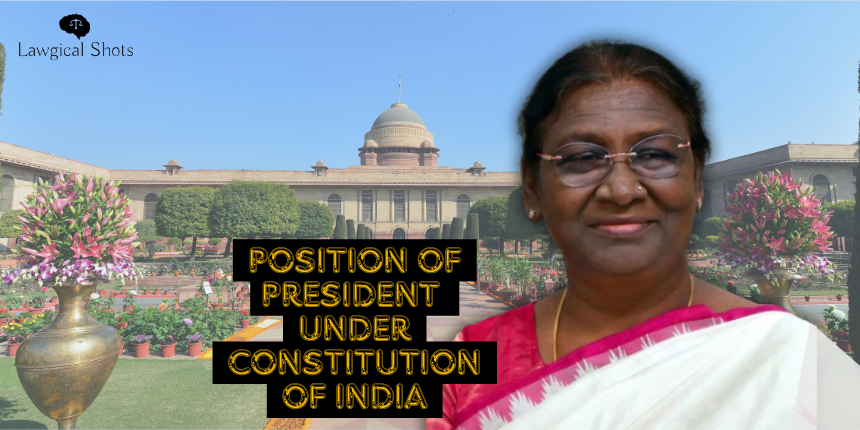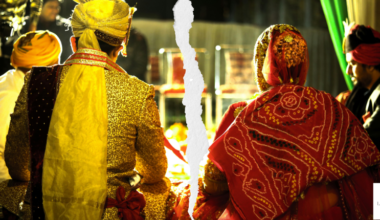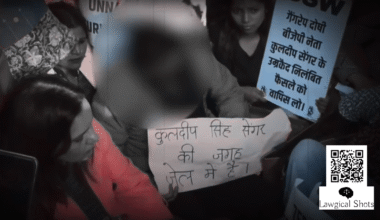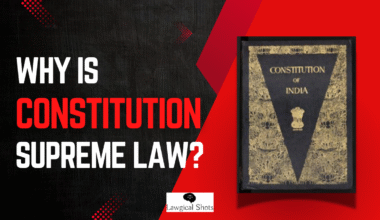The position of President of India under Indian Constitution is supreme. It is considered the highest Constitutional Office. Thus, every Indian, be it a person pursuing legal studies as well as non-legal persons, should know about the Constitutional position of President of India. While it is a fact that the President heads the Union Executive, it is also a reality that he/she mostly acts on the advice of Council of Ministers. The blog here discusses the various roles played by the President as provided under the Constitution of India.
Power and Position of President of India under Indian Constitution
1. Executive
The President acts as the head of the Union Executive, just like Governor – Executive head of the State. The executive role in the position of President of India under Indian Constitution include appointing several authorities like the Prime Minister, Chief Justice of India, appointing the Cabinet Ministers on the advice of the Prime Minister, Attorney General, the Comptroller and Auditor General of India, Chief Election Commissioner and other Election Commissioners, Chairman and other members of the Union Public Service Commission, State Governors, and more.
2. Military
The Constitutional position of President of India makes him/her as the Supreme Commander of the Defense Forces. The position of President of India under Indian Constitution is also responsible for appointing the Chief of Defense Staff, Chiefs of Army, Navy and the Air Force. Declaration of war or peace awaits the President.
3. Legislative
The position of President of India under Indian Constitution holds a lot. Every Bill passed by the Parliament is sent for President’s assent to become an Act. The President jointly addresses both the Houses of Parliament at the first session after every general election, and at the commencement of the first session every year. He/she can also dissolve the Lok Sabha on recommendation of the Prime Minister. 12 Rajya Sabha members and 2 Lok Sabha members from Anglo-Indian Community are appointed by the President. The power to issue ordinance has also been explained below, which holds the force of law followed by approval of the Parliament after session commences.
4. Diplomatic
The position of President of India under Indian Constitution is termed as the ‘Head of the Indian State’ and the first citizen of India. In fact, India is represented by the President in international forums. Thus, the diplomatic powers of President include signing of foreign agreements in his/her name, ceremonial role while representing India, as an appointing authority for Ambassadors, etc.
5. Ordinance making powers
Article 123 of the Constitution of India empowers the President of India to make ordinance. If at any time when both the houses of Parliament are out of session and the President is satisfied with the existence of circumstances, rendering it necessary for taking immediate action, he/she may issue an ordinance. Such an ordinance has the same force as an Act of the Parliament of India.
6. Power to Pardon
Speaking of the Constitutional position of the President of India, Article 72 of the Constitution provides for the President’s power to pardon/reprieve/respite/remit punishment, or to suspend/remit/commute the sentence of any person convicted of an offence. There are specified circumstances when such power can be exercised, being in all cases where the punishment or sentence is by Court martial. Or, if it’s an offence against any law related to a matter to which the executive powers of the Union extend, or in case of death sentence.
7. Judicial Powers
Speaking of the Judicial Powers of President under the Indian Constitution, he/she appoints the Chief Justice of India. The power to pardon, commute, etc. also falls under judicial powers. Apart from that, the privileges include immunity from prosecution in any Court of law, during his/her tenure. The President of India can neither be arrested, nor his/her presence can be required in any Court of law. However, for a civil case, prior 2 month notice is mandatory.
8. Emergency
The position of President of India under Indian Constitution empowers him/her to proclaim emergency in case of threat to security of India or a particular territory due to war (Article 352), State Government’s failure to be carried out in accordance with the Constitutional provisions (Article 356), or in case of threat to the financial stability or credit of India or any territory (Article 360).
9. Financial
Being the custodian of the Contingency Fund of India as per the Constitutional position of President of India, he/she holds complete control over it. In fact, a money bill can be introduced in the Lok Sabha with prior approval of the President. Annual budget and Railway budget are introduced only after the recommendation of the President. The Controller and Auditor General of India (CAG) place their reports before the President for necessary action.








